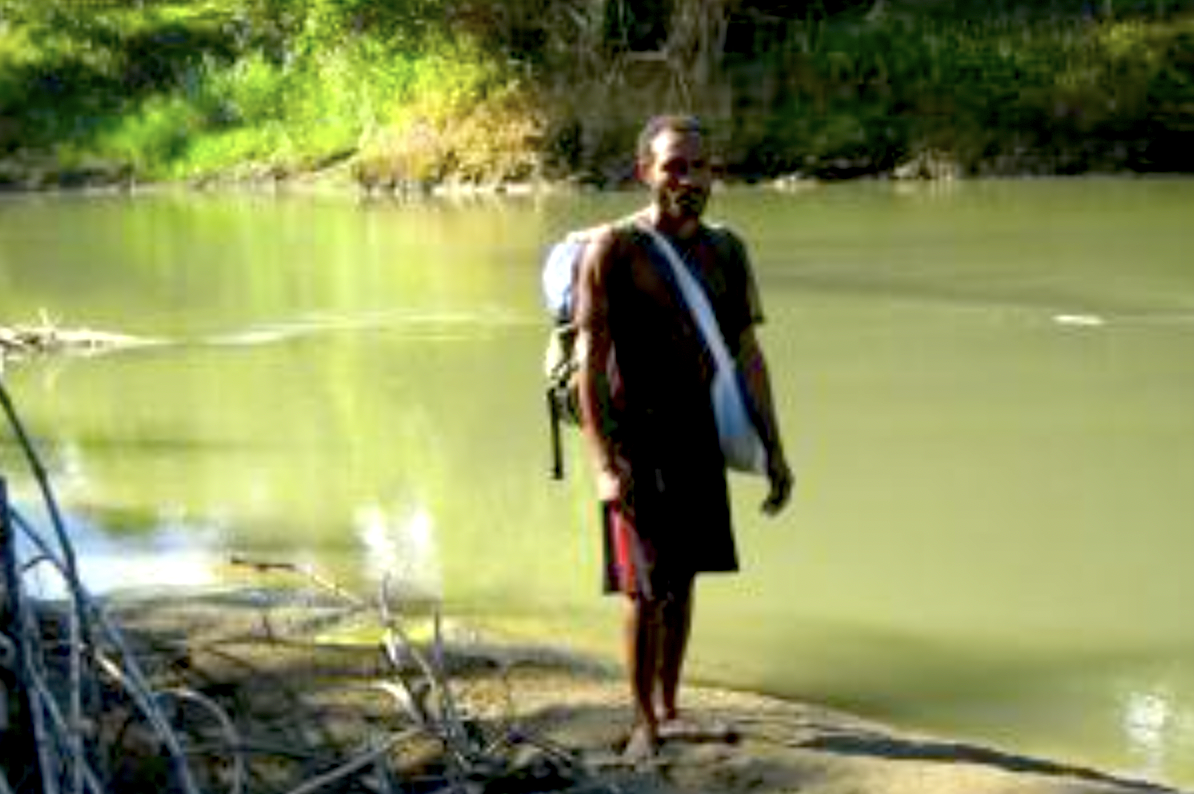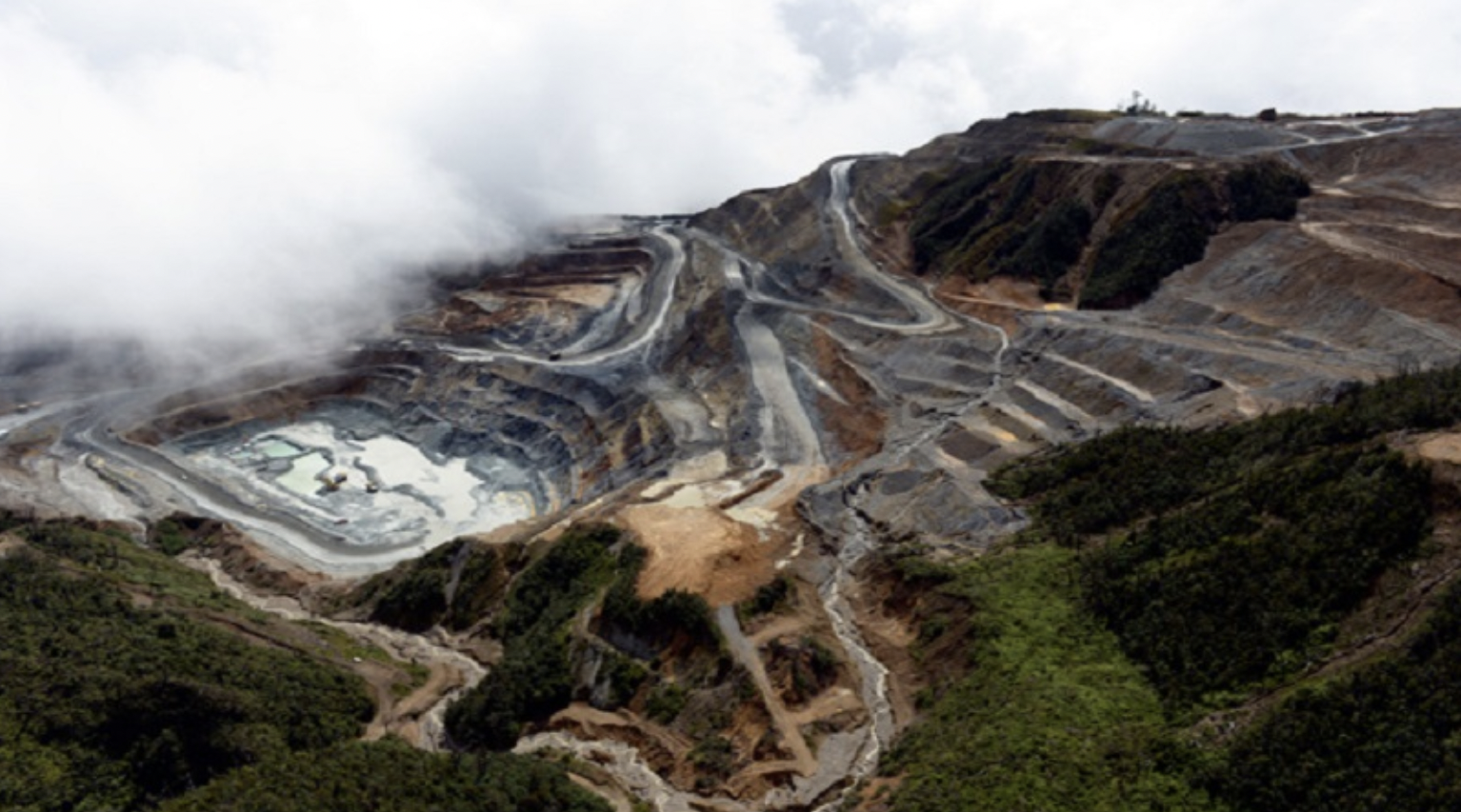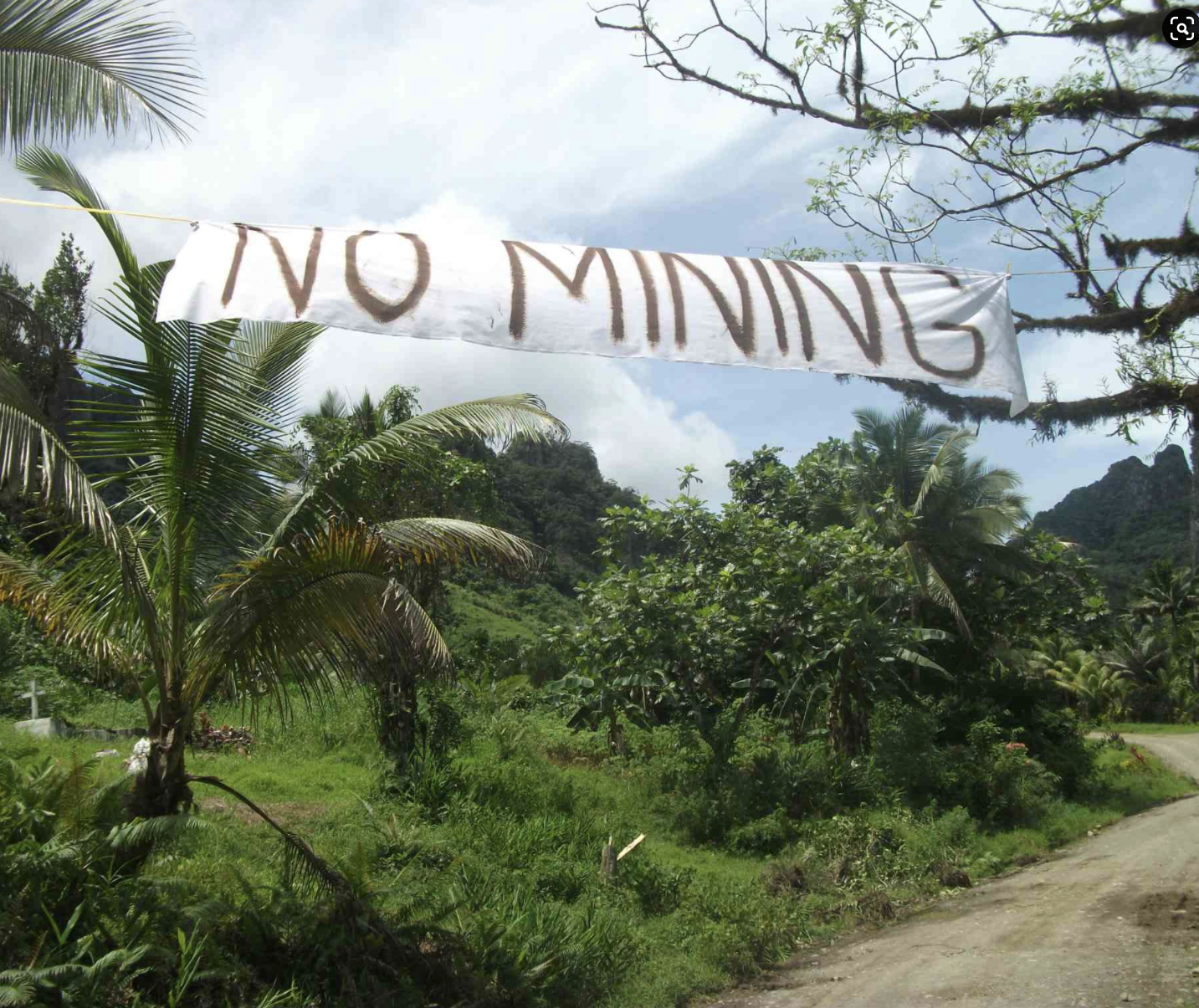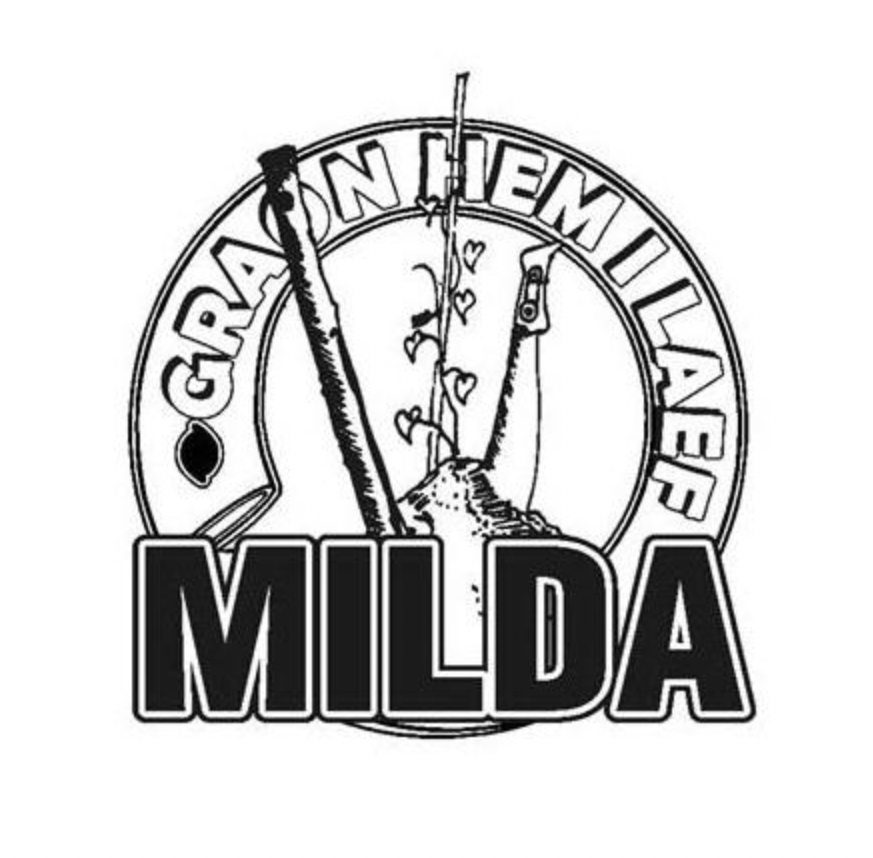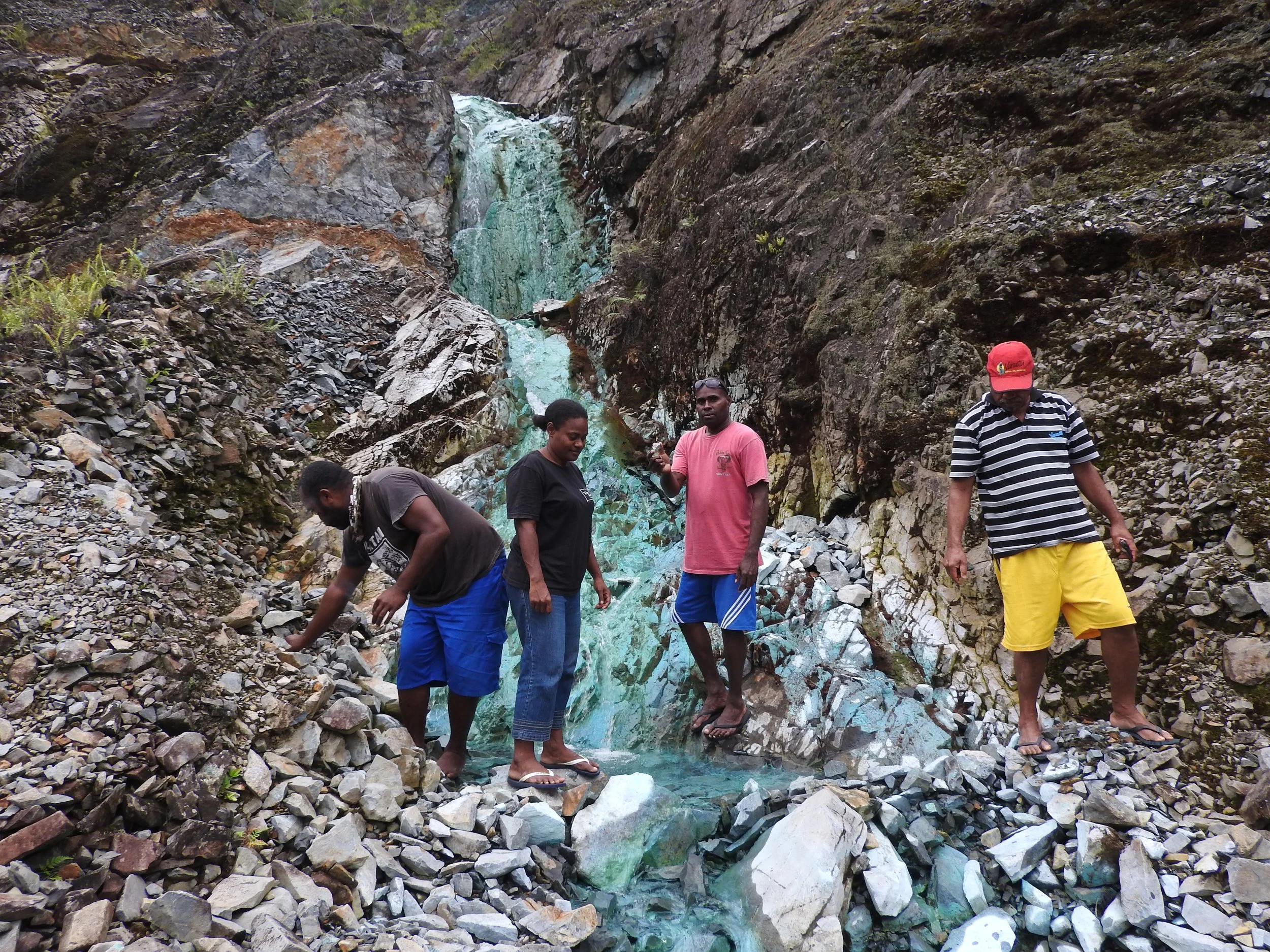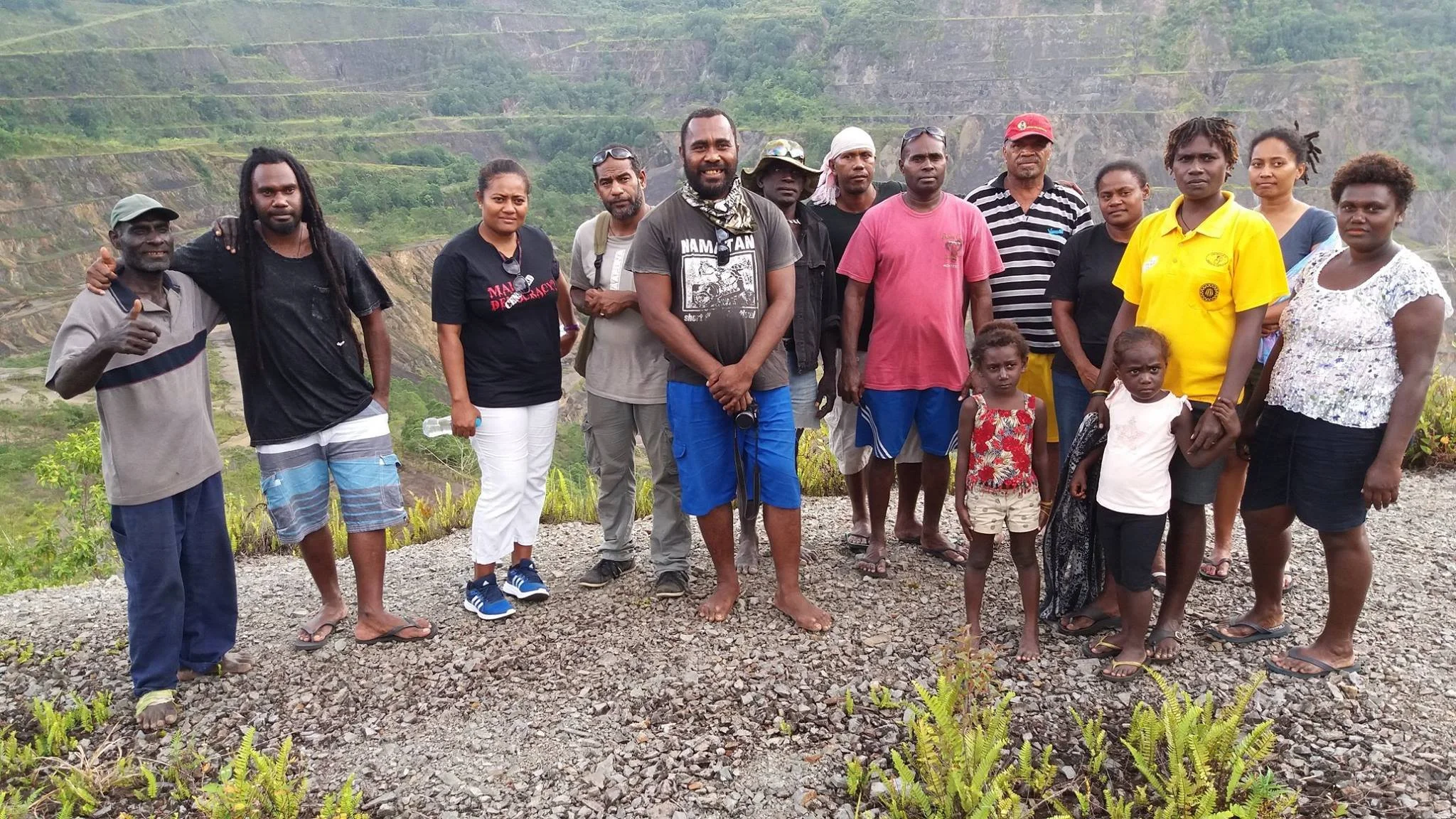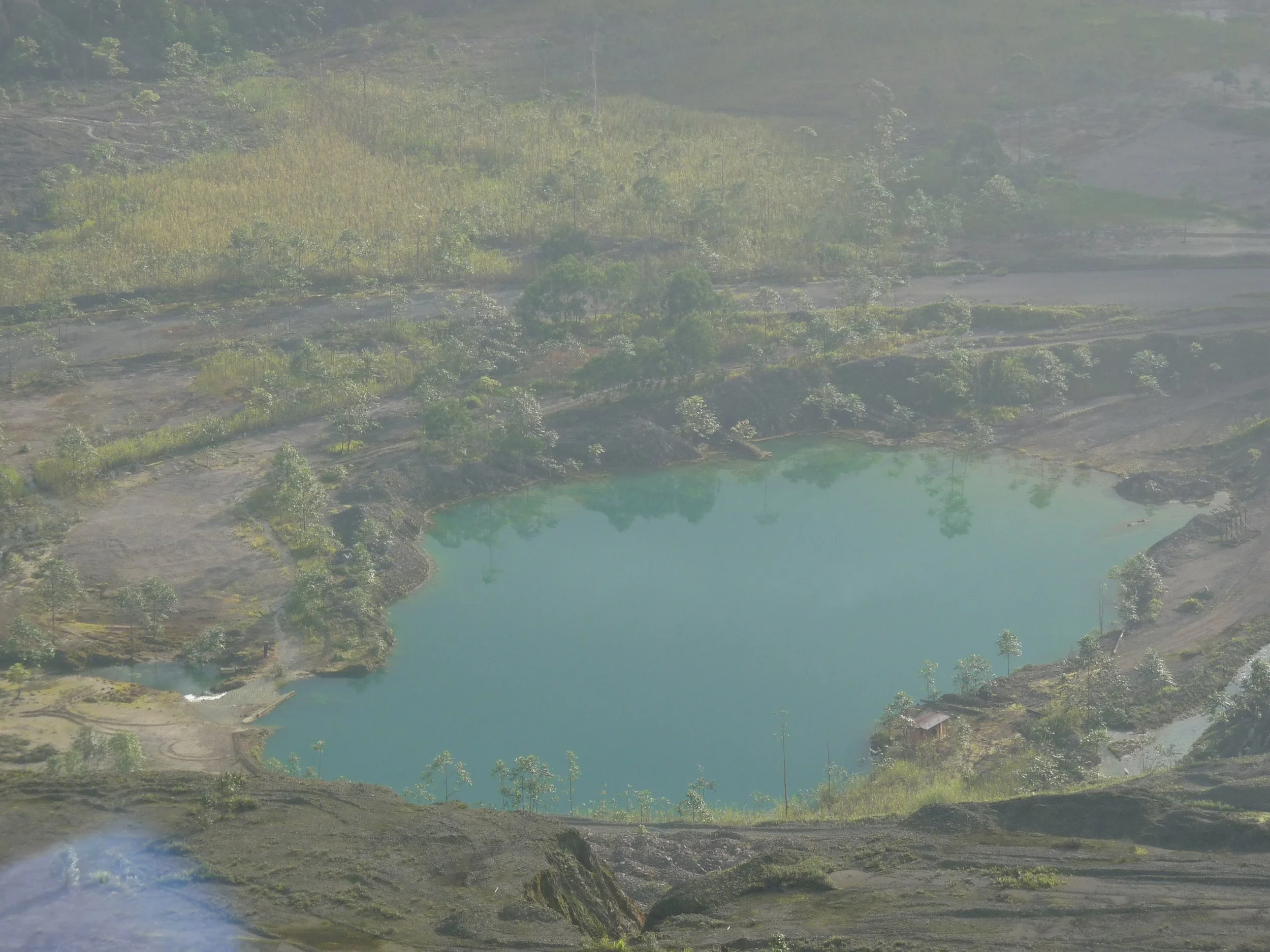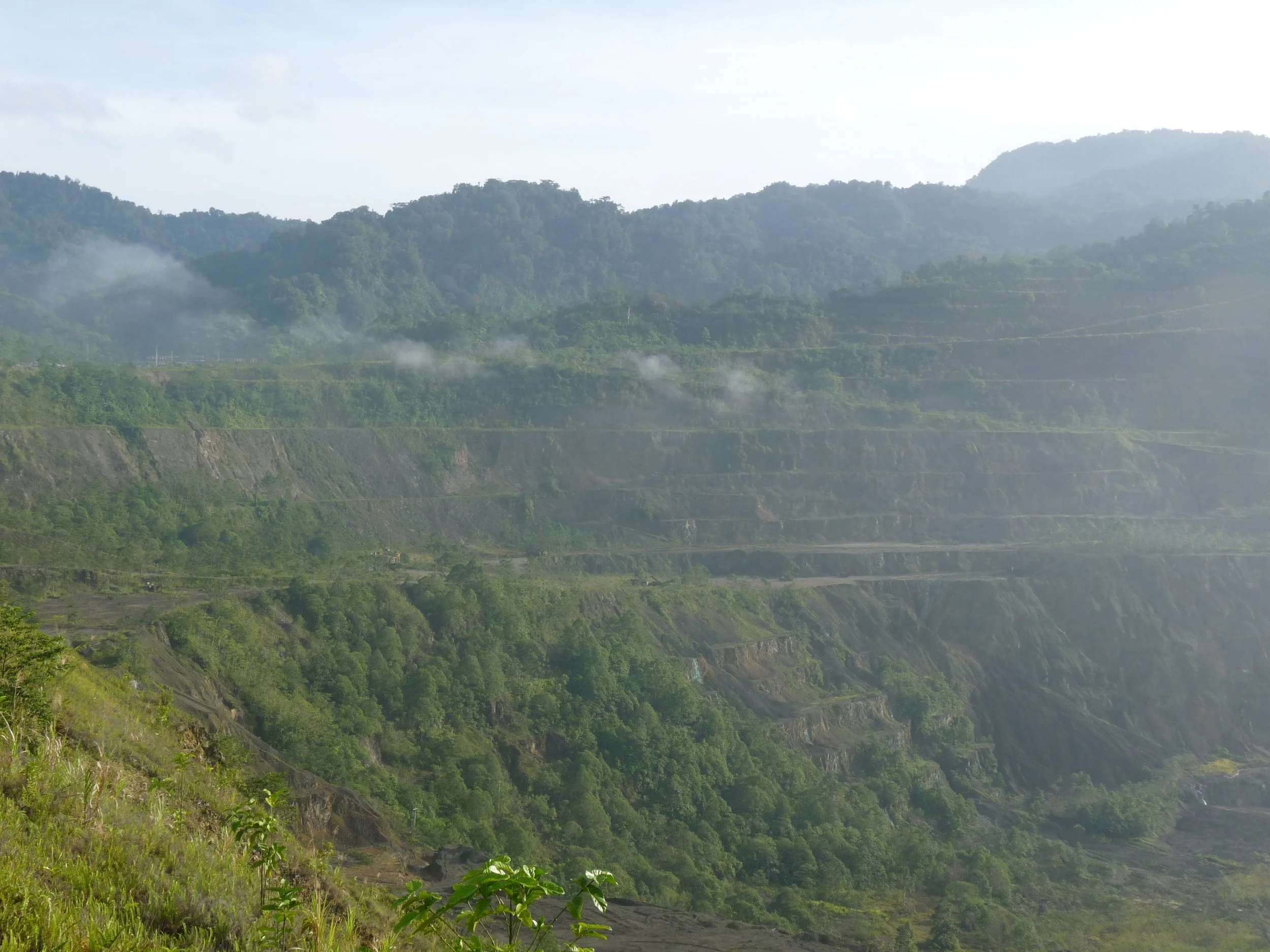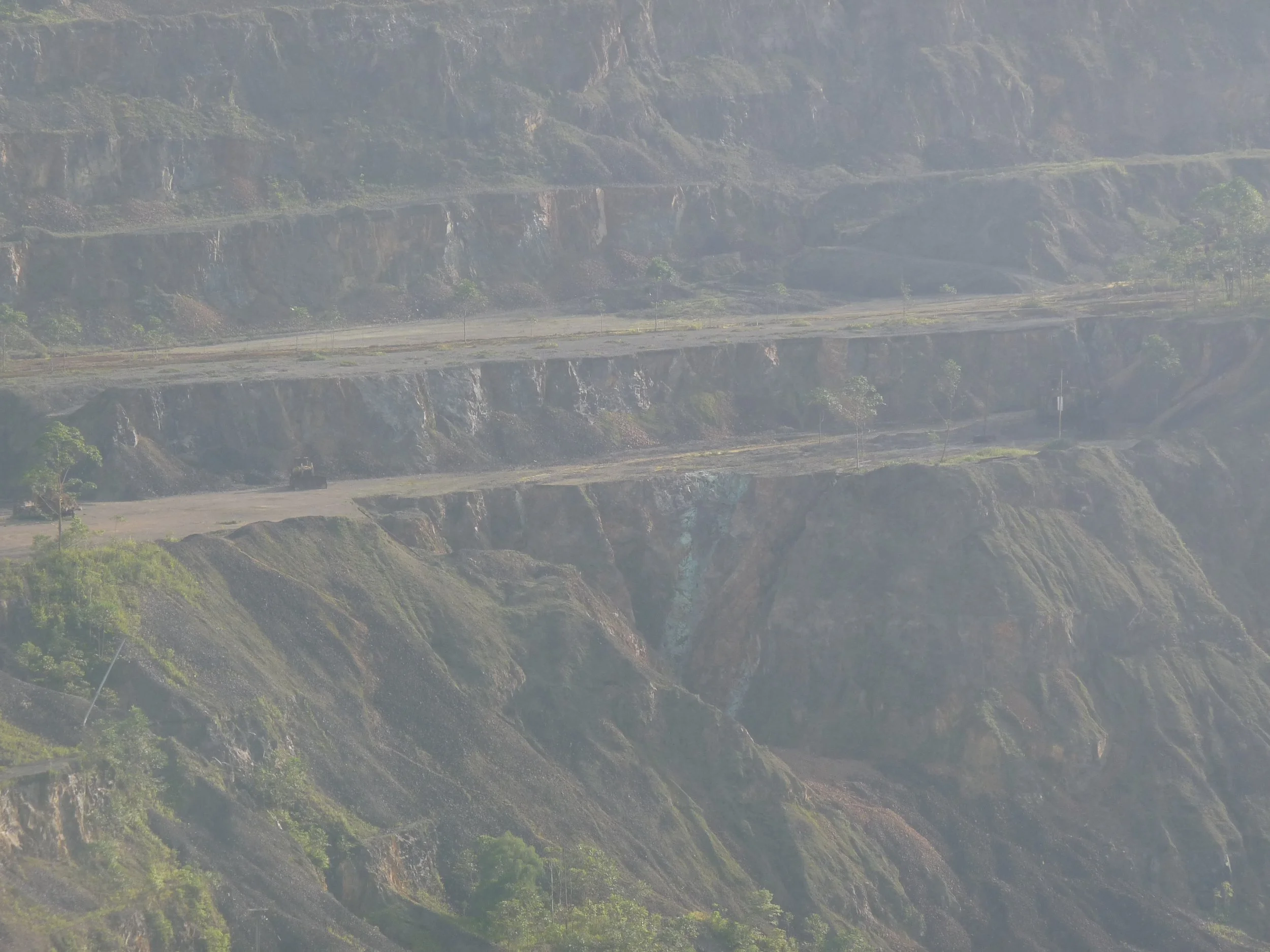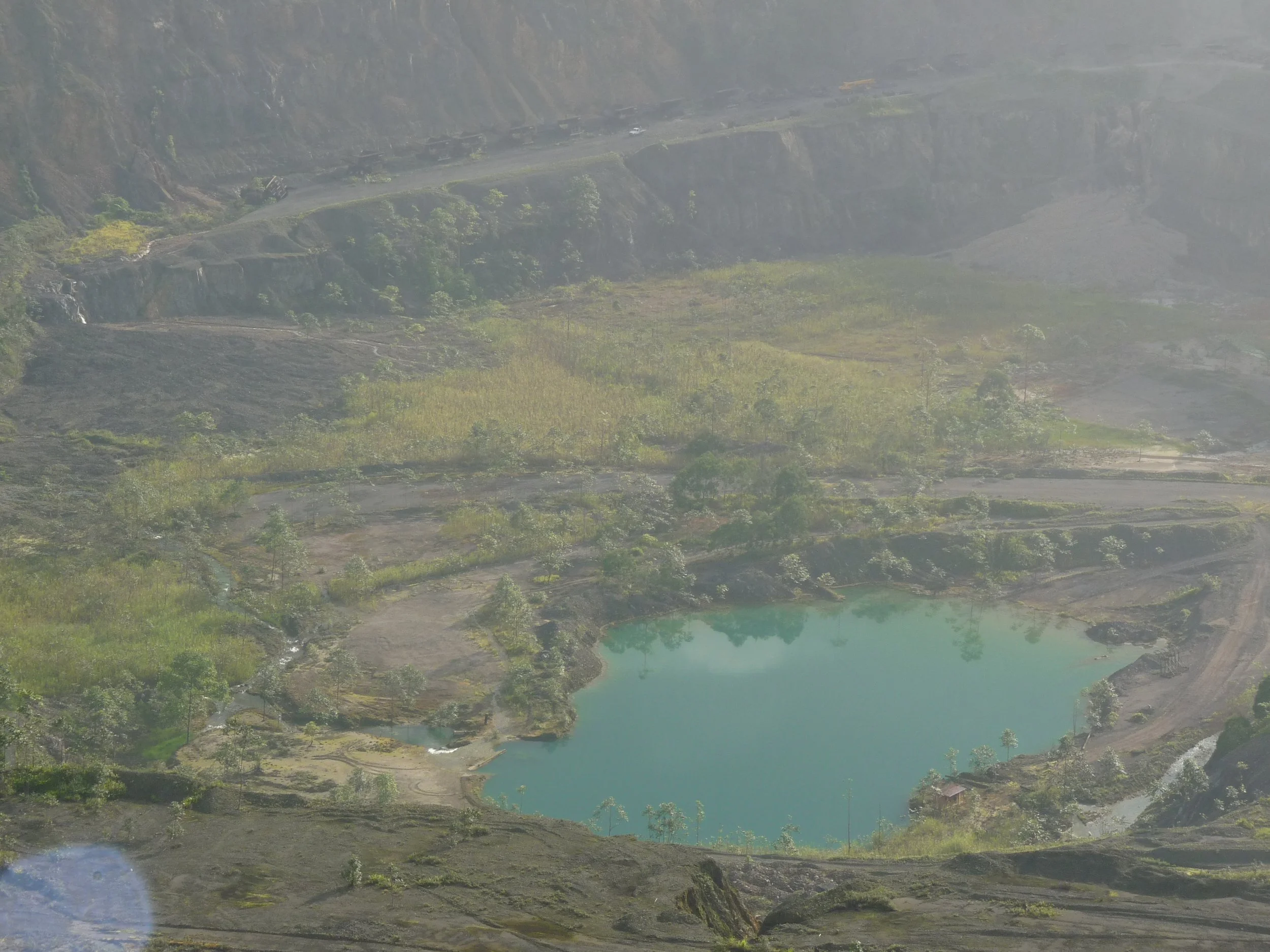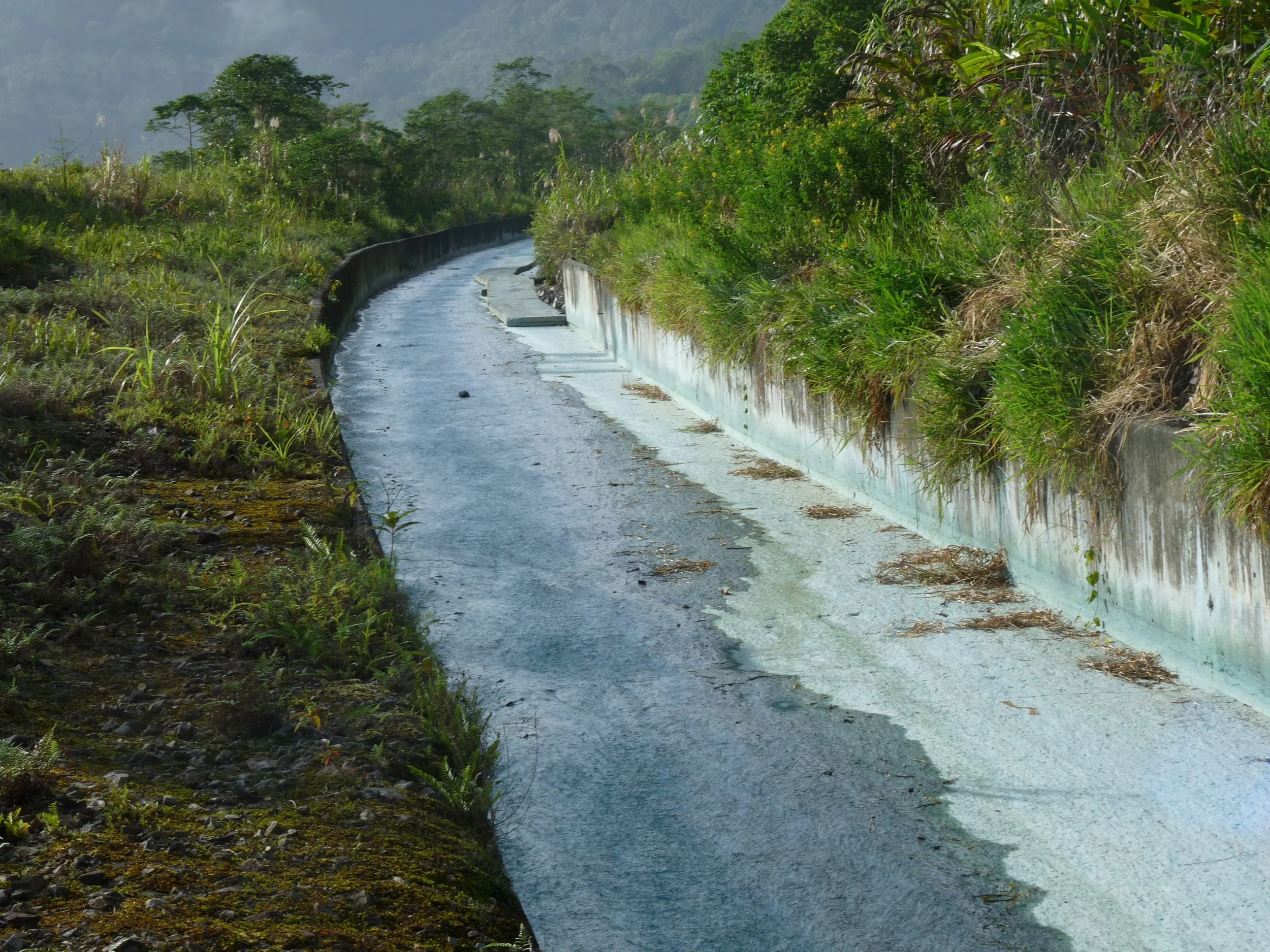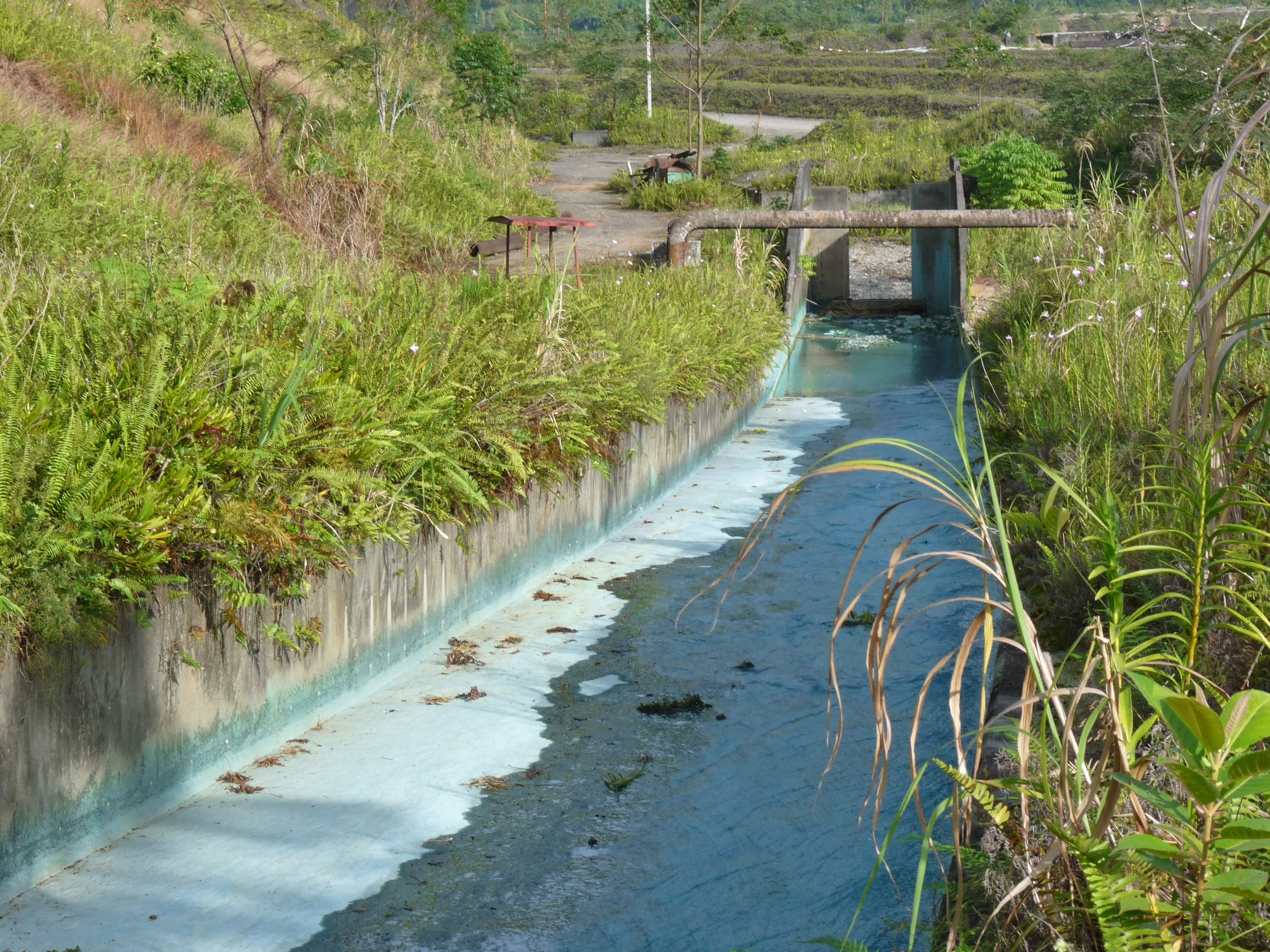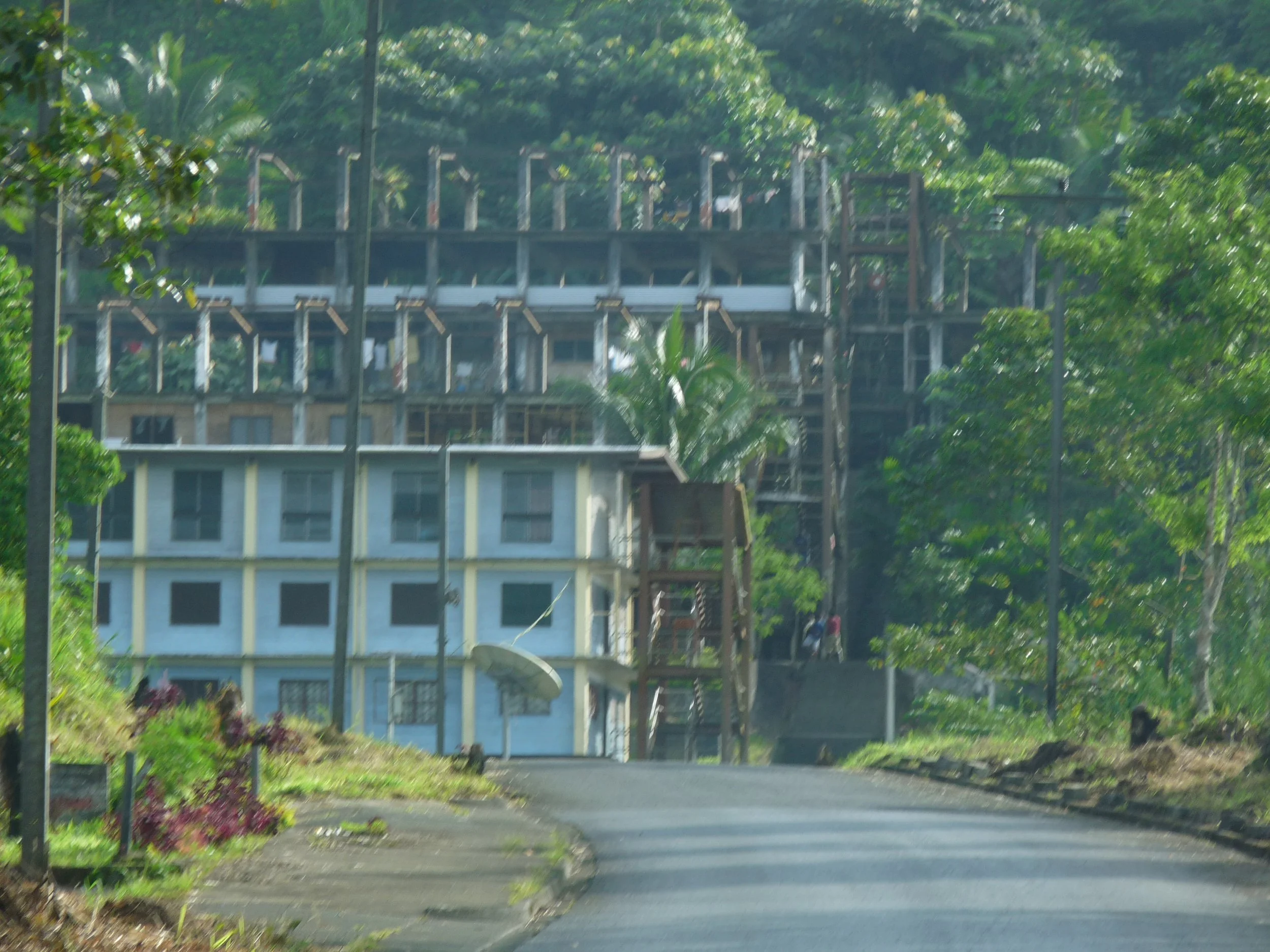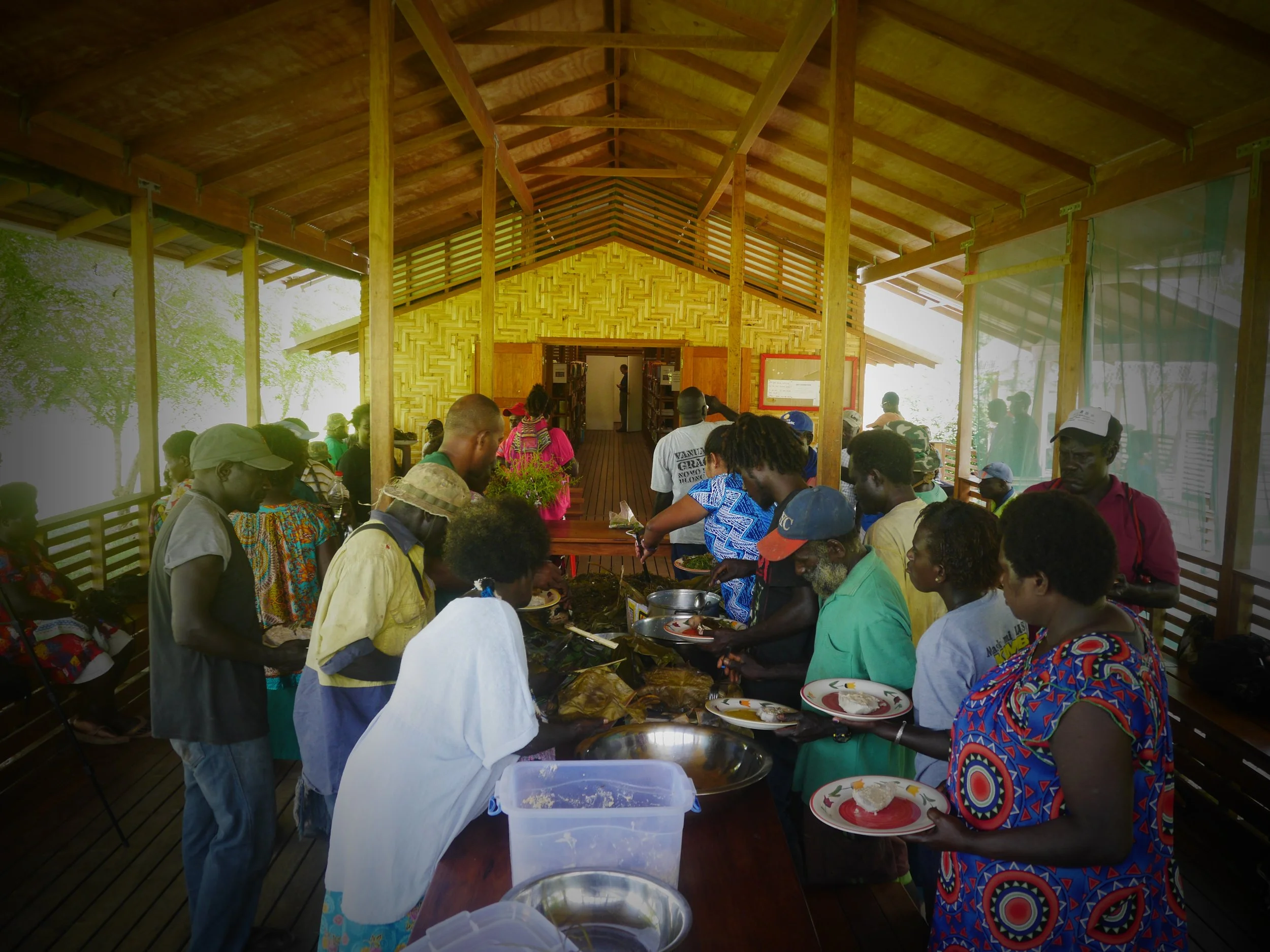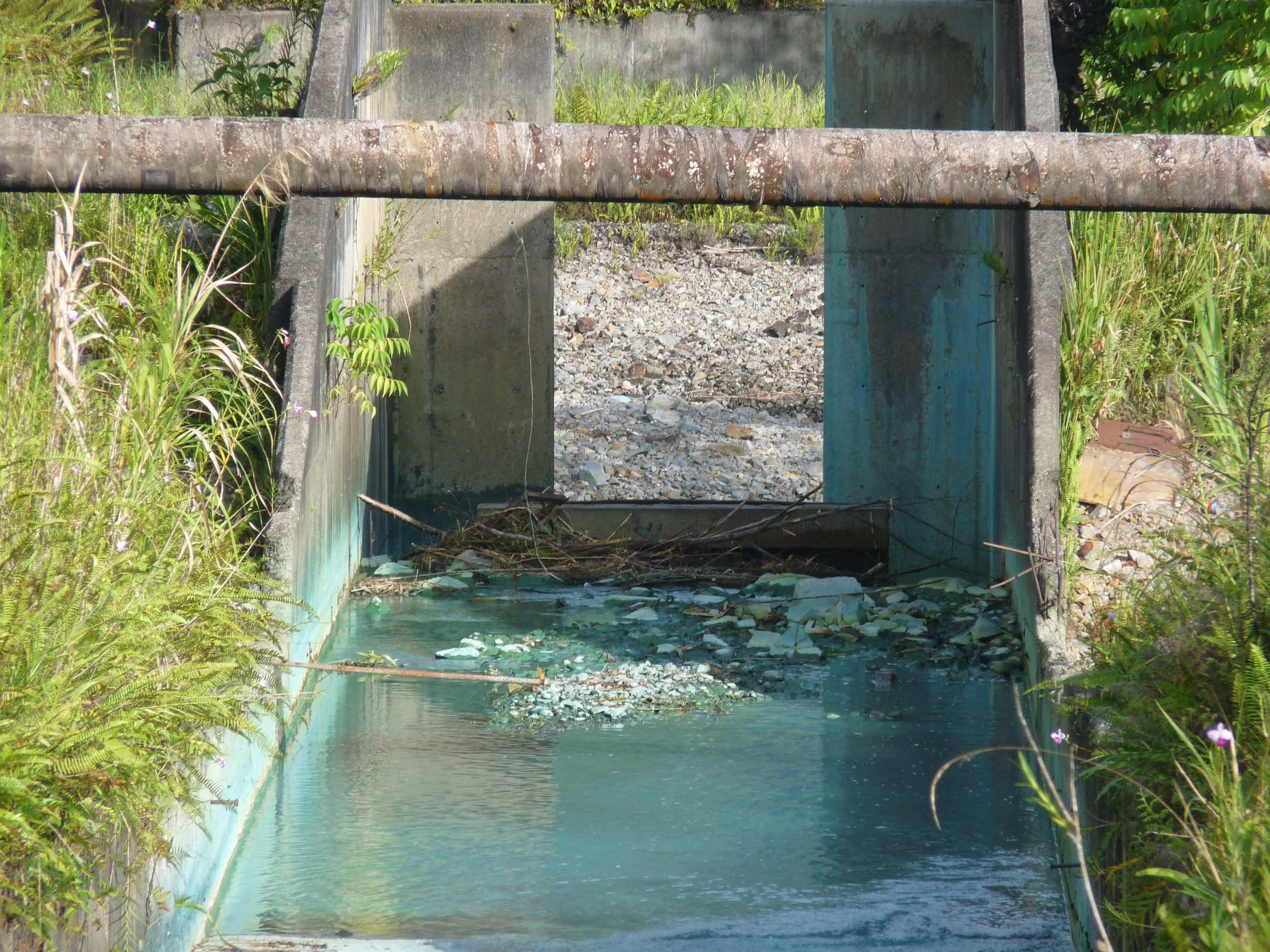
terrestrial mining
“We say NO to all legislative changes with respect to land and sea resources that take away power and control from our people, and give exclusive rights and control to governments and foreign investors, and call for a review of legislative changes that have undermined our indigenous power over our land/sea and our Melanesian Ways” -MILDA Arawa Declaration 2017
MILDA participants examine the Panguna mine tailings (pc: Joel Simo)
MILDA 2017 in Bougainville In August 2017, MILDA convened in Panguna and Arawa on Bougainville. One main objective of gathering in Bougainville was for youth from other parts of Melanesia to witness first-hand the impacts of large-scale extractive industries, and to learn from the hardships the people of Bougainville had endured – before the war, due to the environmental and social devastation that their societies had faced as a result of mining, and then during ten years of civil war fighting to defend their land and resources. Youth from around Melanesia were able to see how the people of Bougainville had stood up together against those with power and money, united in the belief that they were fighting for a better future for their children. Meeting participants from other parts of the region said that they will never forget visiting the Panguna mine pit, and seeing how the heart of the earth had been torn away and destroyed to feed the insatiable greed of a few. - From Growing Bougainville’s Future, Jubilee Australia Research Centre 2018
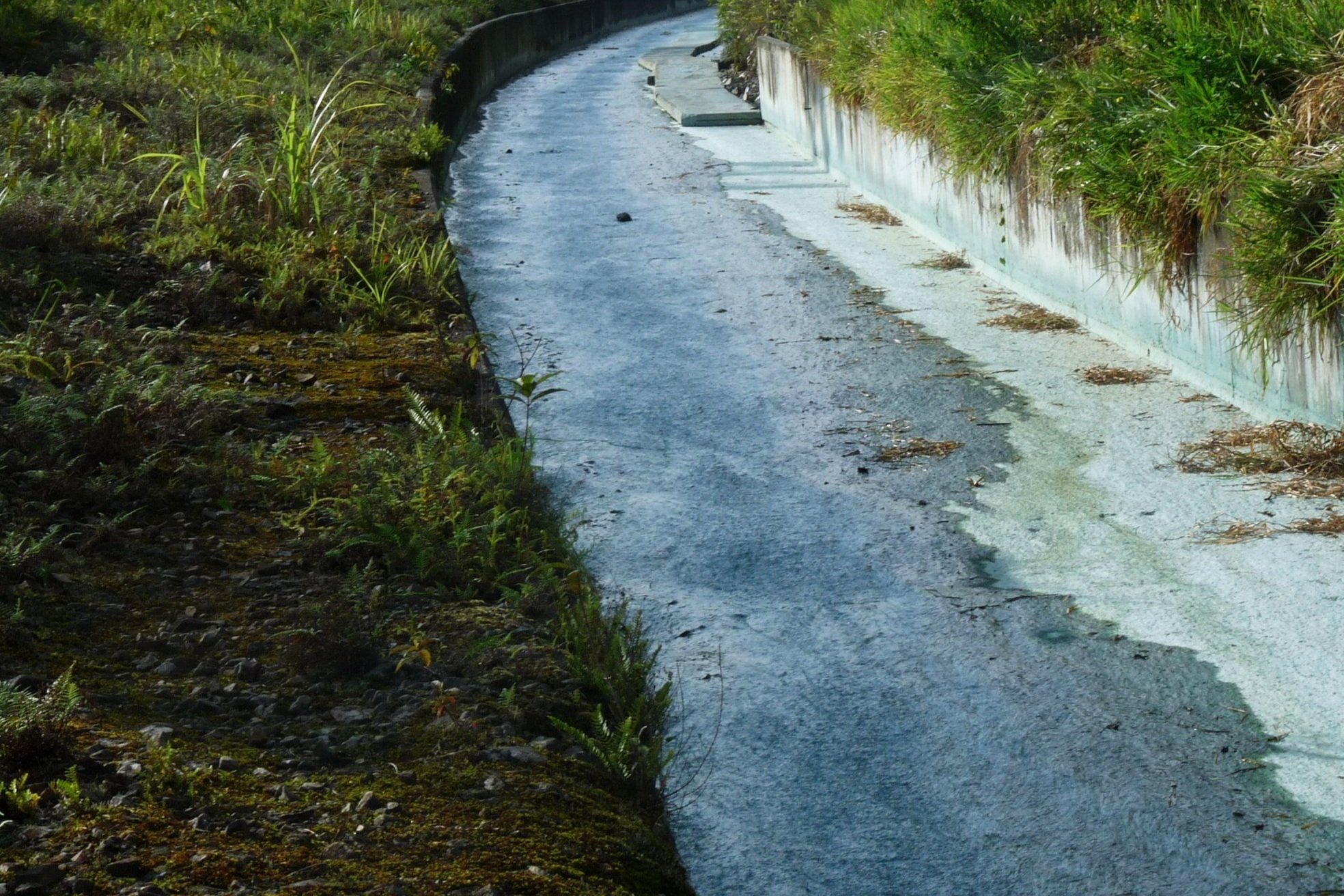
No Mining in Hidden Valley
Protests were brought against the Hidden Valley Mine that is owned by the Australian Newcrest Mining and the South African Harmony Gold companies because of its ongoing pollution of the river and the livelihoods of the Labu people in the Morobe Province. After the road was blocked to prevent MMJV trucks from crossing the Markham bridge, Morobe Governor, Luther Wenge agreed to meet with the landowners.
(PNG Mine Watch March 2011)
